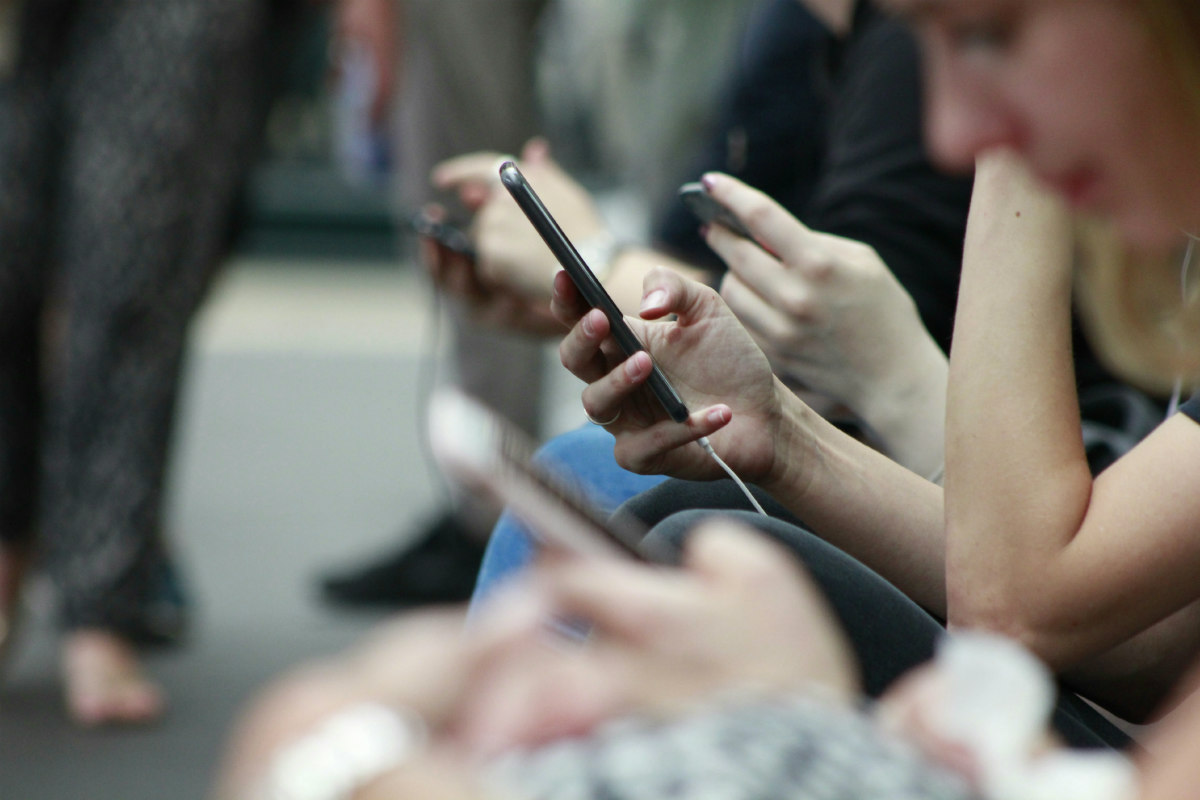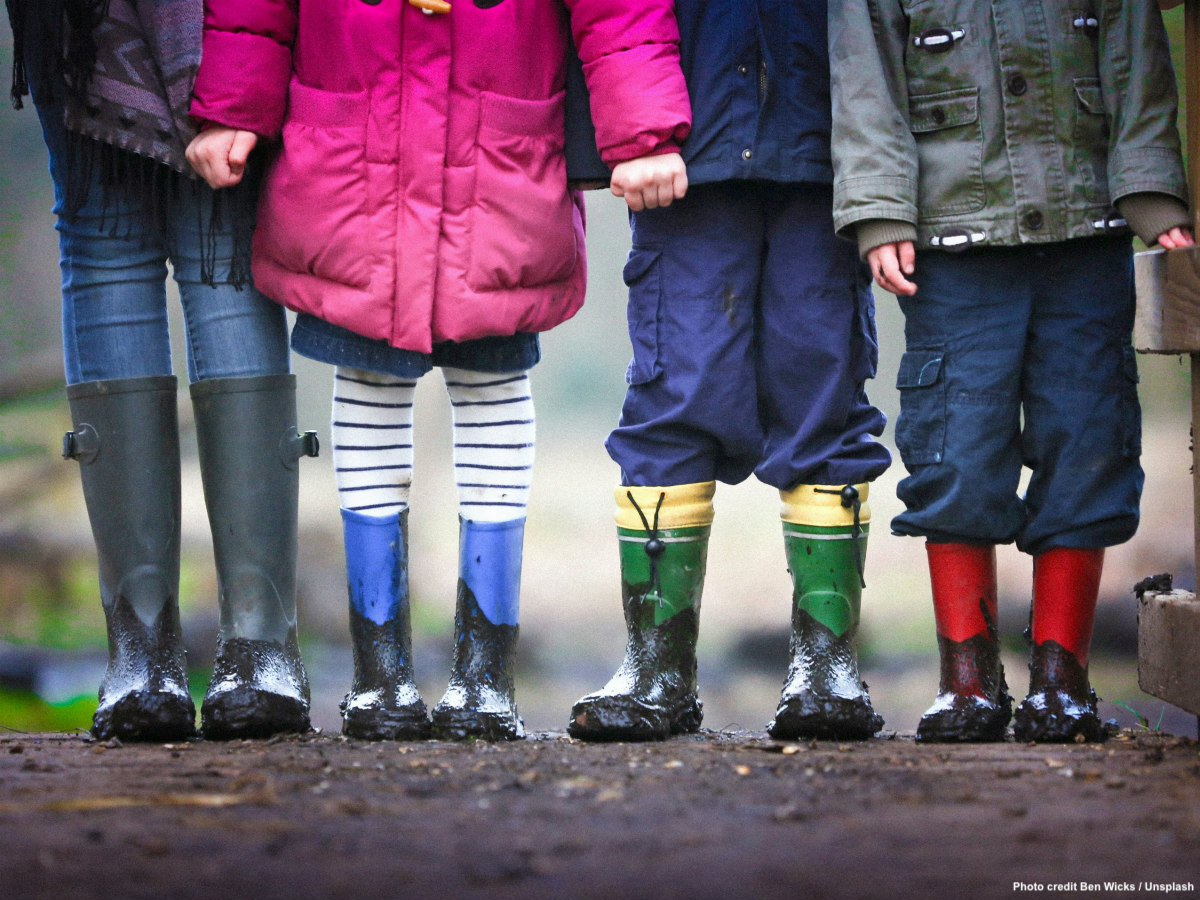The times are long gone when films by the Spanish director Pedro Almodovar such as Tie Me Up! Tie Me Down! in 1989, as many others, failed to reverse an X rating in the U.S. given by the rating board of the Motion Picture Association of America. The X rating “because of one sex scene” restricted the movie to audiences aged 17 and over, albeit just “recommended for people more than 18 years old” in Spain.
Age restrictions still exist — entry to movie theaters, purchase of alcohol, tobacco or driving — in the physical world. But in the digital world, consumption of content by underage users, particularly in social media, runs wild.
Last week American lawmakers voted overwhelmingly to force the Chinese owner of TikTok to sell the video-sharing app or face a ban in the U.S. market. The U.S. government is worried about China obtaining people’s personal data, and using the app’s algorithm to spread disinformation (and meddle in U.S. elections). But given recent studies about the negative effects of social media on the mental health of youngsters, shouldn’t we all care more about keeping our kids off their phones?
In the same week the vote was taken, Jonathan Haidt wrote an article titled “End The Phone-Based Childhood Now” for The Atlantic. Based on extensive research with colleagues Zach Rausch and Eli George, he argues that “something went suddenly and horribly wrong” in the early 2010s due in part to social media and the move to smartphones. “Loneliness and friendlessness among American teens began to surge around 2012,” and academic achievement went down too – in the U.S. and globally.
And the trend persists. Only now, schools are beginning to struggle with a greater number of youngsters, who have a phone-based childhood, and are now being diagnosed with depression and anxiety disorders. Fewer hours of sleep, pressure to be liked, popularity dictated by followers and likes, frustration and despair in their absence, on-line bullying – all of this greatly affects the mental health of young people. Eating disorders, particularly in girls, or even self-harm are also on the rise.
In the U.S., diverse voices like Bernie Sanders or Lori Pbert, a clinical psychologist and professor at the University of Massachusetts Chan Medical School, have claimed that America is facing a mental health crisis because “Young people are grappling with challenges that no generation in modern history has been forced to deal with.”

As a result, a growing number of schools in the U.S. have gone entirely phone-free during the school day. In other countries, social media companies are facing criticism by governments for content considered to be harmful to younger people. And yet, kids get smartphones at increasingly younger ages. It is puzzling.
“Parents begin to worry about mobile phones late, when their kids reach their teenage years. It is at that critical moment when their children are more vulnerable. They spend many hours on their cell phone, and they don’t know how to let it go. Every time you try to regulate it in some way, put some control to moderate it, well, it’s a fight. Children overreact and they are neither rational nor reasonable,” explains Mariluz Guenaga Gómez, Head of Deusto LearningLab at University of Deusto, in Bilbao, Spain.
***
Guenaga has a PhD in Philosophy and Computer Engineering and also teaches at the College of Engineering in the University of Deusto. Seven years ago, she began to be wary of the implications of a phone-based childhood – less as a scientist than as a parent. It was at the time of her daughter’s first communion that smartphones became a star gift for such an occasion, she says, but she didn’t want to give one to her child.
She asked her daughter’s teacher if she, together with her friend Miriam Ross, who is considered an expert in the Basque Country in Internet Safety for Kids, could give a talk to other families at the school, the Kurutziaga Ikastola in Durango, a small town outside Bilbao. After a couple of sessions, all agreed to set up a group of parents called “Guk Hamasei” (meaning “We 16”), who were in favor of delaying gifting smartphones for their kids as long as possible. Guenaga believes that kids do not need a cell phone until they are at least sixteen years old. She knows this is an utopian thought but, at least, it sets a goal.

At school, they began to educate children on the responsible and healthy use of technology, and also how to be aware of dangers such as sexting, pornography, gambling, and so on. Due to the positive reception, the initiative expanded to schools in other areas of the Basque Country, focusing on girls and boys born in 2011 and later.
When Guenaga engages with parents during the formative talks at these schools and asks their reasons for giving a smartphone to their kids at early ages, most parents respond that their children say: “It’s just that others already have it…” “So that I’m not the last to have it…”.
And Guenaga responds, “Well, if we all share that there is no need to have a smartphone, and we reach an agreement between parents to delay buying them, pressure on kids to have one will disappear.”
But there is no shortage of reasons these parents give for buying their children’s first smartphones (when these young kids feel no social pressure) – reasons that seem to intertwine with the complexity of parenting. Guenaga explains, “We blame our children who beg us for a phone, but actually that desire goes back to the time when they were little and we gave them our phone to entertain them and keep them calm when it suited us – when we wanted to eat comfortably in a restaurant or have a quiet drink.” Also, she adds, “we parents are also by no means the best model for adolescents to make healthy and appropriate use of technology.”
There are families who believe that their sons and daughters need cell phones to “stay connected”. But Guenaga finds scant evidence for this. Instead, she points to the fear or need for control over our children – where they are, what they’re doing – and being able to communicate with them at all times. But we know, in those cases where children need to contact their parents urgently, that the same options to previous generations with no mobile phones are available today. Children could also have non-smart cell phones.
***
The problem is not the phone, but having unlimited access to the Internet. Guenaga adds, “It is ok if kids want to play a game for half an hour to relax, or if they are consuming quality content and having fun in a conscious way. The problem is that the cell phone captures us, hooks us and we lose track of time and spend more time than we would like.” While children are on their phone, they spend hours scrolling, looking at social networks such as watching TikTok videos. The opportunity to do other things and interact with other children face-to-face is simply missed. This is wasted time to play sports, read, get bored and encourage creativity; in other words, things that kids have stopped doing.
In the last thirty years, seeing children playing outdoors without supervision has become really rare. I have seen parents and activists waging battle on cars to make streets safe for their kids and people advocating for more playgrounds. Fair enough. But when you listen to Guenaga, it makes you wonder whether this war for more outdoor play has more than one front: overprotection and preference for supervised indoor playdates.

In Ondarroa, a small village between Bilbao and San Sebastian, Iraitz Arrizabalaga, with other parents, started the initiative “Altza Buru” (translated “Lift Your Head”), which is rather a movement to encourage teenagers to leave their phones at home. “We see them sitting next to each other on the streets, looking at their cell phones. We are concerned,” she told a local newspaper. In Tolosa and Zarautz, outside San Sebastian, local shops and public institutions have joined forces with parents, to allow kids to use the business’ phone if they need to call their parents.
I speculate with Guenaga if such initiatives are easier to implement at smaller scales, like schools in small towns, where the capacity of organization is less challenging than in anonymous cities. “Through these groups, parents join forces and feel empowered to impose limits on the usage of technology by their children,” says Guenaga. “Families meet, talk, and learn from each other, and implement some of the recommendations that better fit to their own realities.”
And, of course, governments have to do their part, “beyond their concerns about security and data protection,” claims Guenaga. “Content that is manifestly uncertain, false, biased, manipulated, and harmful should be regulated. There are numerous regulations and legislation to protect young people in the physical world, but in the digital world there are hardly any, or there are recommendations which are systematically ignored.”
Keeping phones out of kids’ hands for as long as parents can seems the reasonable way going forward.




